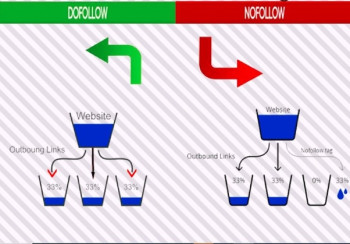Introduction
In the ever-evolving world of digital marketing, gaining visibility and authority online has become more competitive than ever. For businesses, bloggers, and SEO professionals operating in the United Kingdom, one strategy that continues to deliver consistent results is contributing high-quality content to authoritative websites. This approach, commonly known as guest posting, offers more than just backlinks—it helps build credibility, expand reach, and connect with relevant audiences across diverse industries.
As we step into 2025, the dynamics of online publishing are shifting. Search engines are now smarter, prioritizing content that demonstrates expertise, relevance, and trust. Guest posting—when done ethically and strategically—remains a valuable method to establish your voice in the digital space while adhering to these evolving standards.
But not all opportunities are created equal. From niche-specific blogs to high-traffic news portals, choosing the right platform can significantly influence the effectiveness of your outreach. This guide aims to help you navigate the UK guest posting landscape by highlighting reputable websites, providing practical insights, and ensuring your efforts align with what both search engines and human readers expect in 2025.
1. What Is Guest Posting and Why Does It Matter in 2025?
Guest posting is the practice of writing and publishing content on someone else’s website, typically within your industry or niche. The goal is to share valuable insights with a new audience while earning recognition, visibility, and a link back to your own platform. Unlike traditional advertising, guest contributions aim to educate or inform readers in a natural, non-promotional way.
In 2025, the role of guest contributions has become more strategic and quality-driven. Search engines now focus heavily on content that demonstrates real expertise and serves user intent. This means well-written, insightful articles placed on trusted websites can enhance your online presence far more than mass-produced, low-quality link placements ever could.
Beyond improving visibility in search results, thoughtful guest contributions help build your brand’s voice and credibility. When your name appears on authoritative platforms, it sends trust signals to both readers and algorithms. These publications also act as digital endorsements, reinforcing your position as a subject-matter expert in your field.
Moreover, guest contributions remain an effective way to earn high-quality links, one of the strongest signals used by search engines to evaluate site reputation. But more importantly, they open doors to new communities, drive targeted referral traffic, and offer long-term networking opportunities. In today’s content landscape, it's not just about where you're publishing—it's about the value you're delivering to real people.
2. Criteria for Choosing the Best UK Guest Posting Sites
Not all publishing platforms offer the same value, especially when it comes to growing your online reputation and visibility. To ensure your outreach efforts are both effective and sustainable, it's important to evaluate guest posting opportunities using a set of meaningful criteria. Here's what to consider when selecting the right UK-based Guest Post platforms in 2025:
1. Domain Authority (DA) and Domain Rating (DR)
These two metrics, developed by Moz and Ahrefs, respectively, provide an estimate of a website’s overall strength based on its backlink profile. While not used directly by search engines, they’re helpful indicators of a site’s influence. Targeting sites with solid, organic authority helps ensure your content is being published in trustworthy environments.
2. Niche Relevance
Posting on websites that align with your industry or subject matter ensures greater engagement and contextual credibility. For example, if you operate in the financial sector, publishing on a business-focused platform is far more impactful than placing content on a general lifestyle blog.
3. Real Traffic vs. Private Blog Networks (PBNs)
Authentic platforms attract consistent, verifiable visitors. Tools like SimilarWeb, Ahrefs, or Google Analytics (when available) can help you assess a site’s traffic health. Avoid networks created solely for link manipulation—they may look professional, but often provide no real value and could lead to penalties in the long run.
4. Editorial Standards and Publishing Timelines
Reliable websites have clear guidelines, editorial oversight, and defined publishing schedules. Look for platforms that prioritize originality, reader-first content, and proper formatting. A transparent review process is usually a good sign of a quality-focused outlet.
5. Backlink Quality and Do-Follow Links
Links from relevant, authoritative pages carry more weight than those from weak or unrelated content. While no-follow links can still bring traffic, most outreach campaigns aim to earn contextual do-follow links that pass value. Make sure the site doesn’t overuse sponsored tags unless appropriate.
6. UK-Based Audience (Geo-Targeting Relevance)
If your target market is the United Kingdom, it’s essential to focus on platforms that attract a UK readership. This geo-relevance helps improve local search visibility and increases the chances of your message reaching the right audience. Clues to look for include a “.co.uk” domain, British spelling and tone, or UK-based contributors.
3. Paid vs. Free Guest Posting Sites: What’s Worth It?
When exploring guest posting opportunities, one of the most common dilemmas is whether to invest in paid placements or pursue free contributions. Both approaches offer distinct benefits and drawbacks, depending on your goals, budget, and the type of audience you want to reach. In 2025, understanding the trade-offs has become even more important as search engines continue to prioritise content quality and authenticity.
Free Guest Posting: Authority Through Merit
Free guest posts are typically accepted based on the quality and relevance of your pitch or article. These platforms often have higher editorial standards, meaning your submission must be original, insightful, and valuable to their readers.
Pros:
Builds organic authority and credibility.
More likely to attract a loyal, engaged readership.
Typically comes from editorially vetted platforms, which are safer in terms of SEO.
Signals authenticity to search engines and human visitors alike.
Cons:
Highly competitive—many receive dozens of pitches daily.
Can take longer to get published due to thorough review processes.
Often have strict contributor guidelines or limited backlink opportunities.
Paid Guest Posting: Fast-Tracked Visibility
Paid opportunities usually involve a fee to have your article published. These range from sponsored posts on niche blogs to placements on larger publications via outreach networks.
Pros:
Faster publishing timelines and guaranteed placement.
Useful for brand visibility, especially in time-sensitive campaigns.
Allows more control over link inclusion, anchor text, and article structure.
Cons:
Risk of being flagged as sponsored or manipulative if not disclosed properly.
If the platform lacks real traffic or trust, the value of the backlink may be minimal.
Overreliance on paid links can lead to manual actions by Google if abused.
Which One Is Worth It in 2025?
The best strategy blends both methods—but with caution. Prioritise free guest posting when:
You're targeting high-authority websites.
You aim to build a long-term reputation and brand trust.
You're establishing yourself as an expert in your field.
Consider paid guest posting only when:
The platform is transparent, has real traffic, and aligns with your niche.
You need to amplify reach quickly (e.g., during a product launch).
It's part of a diversified SEO strategy, not the foundation
4. How to Successfully Pitch Your Guest Post (with Template)
Reaching out to editors and website owners for guest post opportunities can be highly effective—if done right. In 2025, editors are overwhelmed with generic requests, making it crucial to personalize your pitch and clearly demonstrate value. Here’s how to make your outreach stand out without violating search engine guidelines or editorial standards.
Key Components of a Successful Pitch
To improve your chances of a positive response, make sure your email includes the following elements:
Personalized greeting: Address the editor by name if possible.
Genuine compliment: Reference something specific from their site to show you're familiar with their content.
Clear value proposition: Explain how your contribution benefits their readers.
Relevance: Mention how your topic aligns with their existing content or audience.
Professional tone: Keep it concise, respectful, and businesslike.
Offer flexibility: Be open to feedback or topic adjustments.
Optional mention of payment: If it's a sponsored post, be transparent without sounding overly promotional.
Common Mistakes to Avoid
Mass emails: Generic pitches sent to multiple sites usually go unread.
Poor grammar or formatting: Sloppy writing signals low content quality.
Too much self-promotion: Focus on helping their readers, not advertising yourself.
Unclear intent: Be specific—are you submitting a free contribution or a paid collaboration?
Ignoring guidelines: Always check if the site has submission rules and follow them.
Sample Outreach Email Template
Here’s a professional and user-friendly email you can tailor to suit different websites:
Subject: Guest Post Collaboration Inquiry
Dear Sir/Madam,
I hope this email finds you well. I recently visited your website. ()
and was truly impressed by its elegant design and engaging content. Your recent blog post, in particular, resonated with me and showcased the quality and professionalism of your platform.
I am reaching out to explore the possibility of contributing a paid guest post to your website. I value the high standards of your content and believe my article would align seamlessly with your audience’s interests. I am happy to cover any editorial fees associated with this collaboration.
This partnership would provide your readers with insightful and relevant content while helping to increase the visibility of my business. By working together, we could mutually enhance our online presence and SEO efforts.
Please let me know if this proposal aligns with your goals. I’d be happy to share more details about the topic or answer any questions you may have.
Thank you for considering my request. I look forward to your reply.
Warm regards,
[Sajid Ali]
[amazingitsolutions.org]
[info@amazingitsolutions.org]
Use this as a base and always adapt the tone and content to the platform you're pitching to. Editors appreciate thoughtful, customized messages, and it sets a strong first impression.
5. Guest Posting Do’s and Don’ts in 2025
Guest posting remains a powerful tool in digital marketing, but the rules have evolved. In 2025, search engines and publishers demand higher standards, and any attempt to game the system can do more harm than good. Below are the essential do’s and don’ts to help you contribute valuable content while protecting your online reputation and rankings.
✅ Do: Write Original, Reader-Focused Content
Focus on solving a problem, answering a question, or providing value that aligns with the host site’s audience. Originality is key—not only in avoiding plagiarism but also in presenting fresh ideas or unique perspectives. Content written with users in mind will naturally perform better, both in engagement and SEO.
❌ Don’t: Keyword Stuff or Reuse Spun Content
Overusing specific phrases or stuffing the same terms into every paragraph signals low-quality intent. Search engines in 2025 are advanced enough to detect unnatural language patterns and semantic manipulation. Likewise, never recycle spun or AI-generated content that lacks depth or coherence—this can lead to penalties or content rejection.
✅ Do: Follow the Editorial Tone of the Site
Before submitting your article, take time to study the host site’s tone, structure, and content style. Whether formal, conversational, or technical, your writing should match their brand voice. This increases the likelihood of approval and shows respect for their publishing standards.
❌ Don’t: Use Manipulative Anchor Texts
Using exact-match anchor text like “cheap SEO services London” can trigger red flags in modern link evaluation systems. Instead, opt for natural, context-driven linking that fits smoothly into the sentence. The goal is to inform—not to trick algorithms.
✅ Do: Include Credible Sources and Real Insights
Support your claims with recent data, case studies, or trustworthy references. Adding useful links to high-authority sources improves trustworthiness and demonstrates research effort—something both editors and readers appreciate.
❌ Don’t: Ignore Guidelines or Overlook Formatting
Each site may have unique submission rules regarding word count, image use, links, or formatting. Ignoring them can delay or disqualify your pitch. Always proofread, structure your headings clearly, and follow any instructions provided.
6. Common Guest Posting Scams in the UK Market
As guest posting continues to grow in popularity, especially in competitive regions like the UK, so does the number of fraudulent practices targeting businesses, marketers, and SEO professionals. In 2025, search engines are cracking down harder than ever on manipulative link-building, making it vital to identify and avoid unethical or fake opportunities. Below are the most common guest posting scams to watch out for in the UK digital landscape.
1. Fake Authority Sites with No Real Audience
Some platforms showcase high metrics—like Domain Authority (DA) or Domain Rating (DR)—but have zero meaningful traffic or engagement. These sites are often part of private blog networks (PBNs), built solely to sell backlinks. They may look polished but lack organic search presence or user interaction.
Red flag: The site has many outbound links, generic content, and no active community or comments.
2. Hidden PBNs Posing as Legitimate Blogs
Private Blog Networks still circulate under the radar, often disguised as niche blogs. While they may promise fast link placements, these sites are easily detectable by Google due to shared hosting patterns, identical layouts, and low-quality content.
Red flag: Several similar-looking sites offered by the same seller, often hosted on the same IP range.
3. Disappearing Posts or Links After Payment
A growing scam involves publishers who accept payment, publish your article, and then delete it—or remove the link—weeks later. Without any formal agreement or transparency, it's hard to reclaim your investment.
Red flag: No clear policy, no invoice, and reluctance to use contracts or email records for accountability.
4. Selling Links Without Disclosure
Some providers offer to place links on premium UK publications, but fail to disclose that these are sponsored placements, not editorially earned. Misrepresenting the nature of the link violates not only Google’s guidelines but also the trust of the audience.
Red flag: Unrealistic offers like "guaranteed placements" on top-tier news sites for a low fee, with no byline or author profile.
5. Using AI-Generated, Unedited Content
Unscrupulous sellers may submit AI-generated articles filled with shallow, keyword-heavy content that adds no value. These posts risk being removed by publishers and offer no long-term SEO value.
Red flag: Very fast delivery with vague writing and minimal formatting. No originality or clear structure in the content.
6. Identity Spoofing of Reputable Editors
Some scammers impersonate editors or outreach managers from trusted UK sites to lure you into sending money or content. They often use similar-looking email addresses or spoofed domains.
Red flag: Offers that sound too good to be true, especially from unofficial email accounts (e.g., Gmail or misspelled domains).
How to Stay Safe
Research every site’s traffic and backlinks using tools like Ahrefs or Semrush.
Communicate transparently—avoid WhatsApp or Telegram-only offers with no formal channels.
Ask for proof of previous publications and check them yourself.
Avoid deals that push urgency or “limited-time” slots.
Always sign agreements when money is involved, even for small payments.
8. Alternatives to Guest Posting for UK Backlinks
While guest posting remains a trusted way to earn relevant links, it’s not the only route to building a strong backlink profile, especially within the UK market. In 2025, diversification is crucial for sustainable SEO. Relying on a single tactic can limit your reach and even invite penalties if overused. Here are four effective alternatives that align with Google’s focus on quality, context, and user relevance.
Niche Edits (Contextual Link Insertions)
Niche edits involve placing a backlink into an existing, indexed article on a relevant website. Unlike guest posts, you're not creating new content; instead, you're enhancing a published piece by adding value with your link.
Benefits:
Faster results since the content is already indexed.
Leverages the authority and age of the existing post.
Often more affordable than full guest contributions.
Things to watch:
Ensure the edit is contextual and natural, and the linking page aligns with your topic. Avoid sites that sell excessive niche edits across unrelated content—it’s a signal of manipulation.
PR Outreach (Digital PR Campaigns)
Public relations outreach is about earning mentions in media and high-authority sites by offering newsworthy stories, data, or expert insights. This strategy works particularly well in the UK due to a strong media presence and well-segmented industries.
Examples:
Launching a new product or service.
Publishing a unique industry report or survey.
Offering expert commentary on trending topics.
Why it works:
Media mentions usually bring high-authority backlinks, build brand trust, and generate real traffic—not just SEO value.
HARO / SourceBottle (Help A Reporter Out)
These platforms connect journalists with expert sources. By responding to relevant queries, you can be featured in articles across various UK media outlets, often with a backlink.
How to succeed:
Respond quickly with concise, insightful answers.
Highlight your credentials or experience.
Stick to queries that fit your niche or expertise.
Bonus:
These mentions tend to be editorially placed, which aligns perfectly with Google’s guidelines on earned links.
Local Citations (For UK-Based Businesses)
If you're targeting regional visibility, local citations are a must. These are mentions of your business on local directories, chamber of commerce sites, industry-specific UK platforms, and map services like Google Business Profile or Bing Places.
Benefits:
Boosts visibility for local SEO.
Validates your business across trustworthy UK sources.
Often includes a homepage link and consistent NAP (Name, Address, Phone).
Best practices:
Ensure consistency across all platforms.
Prioritize trusted UK directories like Yell, Thomson Local, and business association listings.
Conclusion
In 2025, the landscape of guest posting in the UK continues to evolve, placing more emphasis on authenticity, relevance, and value for the end reader. Whether you're a business owner, marketer, or SEO professional, the key to sustainable success lies in prioritizing quality over shortcuts.
From understanding the role of guest contributions in modern search visibility to identifying trustworthy platforms and avoiding common scams, every step should be guided by user intent and editorial integrity. Google’s latest algorithms reward natural link-building efforts, ethical outreach, and content that genuinely helps the audience.
Additionally, combining guest posting with alternative methods, such as digital PR, HARO responses, or local citations, can strengthen your backlink profile while minimizing risk. In short, an effective strategy isn’t about chasing links; it’s about building relationships, offering value, and earning trust online.
By staying informed and aligning your approach with both publisher standards and user expectations, you can use guest posting not just as an SEO tool but as a long-term brand-building asset in the UK market.








